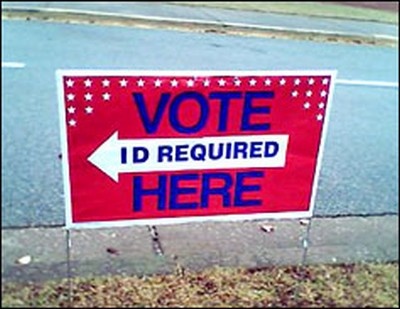Voter ID cases could test Voting Rights Act

Since 1965, Section 5 of the Voting Rights Act has been a key tool used by civil rights and election reform advocates to protect the franchise in the South. By requiring states and counties to "pre-clear" major election changes with the Department of Justice, the measure has allowed groups to challenge a variety of state laws that threatened to disproportionately hurt African-American and other historically disadvantaged voters.
But Section 5 has come under increasing scrutiny from conservative lawmakers and the Supreme Court itself. Three years ago, in a lawsuit brought by a Texas sewer district, the court came close to striking down Section 5 on the grounds that it represented an unconstitutional over-reach by Congress over states' rights.
While the Supreme Court didn't end up striking down Section 5 in the Texas case, their opinions signaled a displeasure with the provision. That fueled more challenges, from a small-town Kinston, North Carolina lawsuit over non-partisan elections (still pending) to the more epic issue of Texas redistricting (which just this week the court suggested would not be used to challenge Section 5).
Now election law expert Rick Hasen sees another, more immediate threat on the horizon: Legal battles over the Department of Justice's increasing role in challenging voter ID bills that passed in several states last year.
On the Friday before Christmas Day, 2011, the DOJ formally objected to South Carolina's new voter ID bill, where the state's own statistics showed that “there are 81,938 minority citizens who are already registered to vote and who lack DMV-issued identification," making them “effectively disenfranchised” by the law.
South Carolina Gov. Nikki Haley quickly denounced the DOJ's decision to use Section 5 pre-clearance to oppose the law, and the state's lawyers moved to challenge it in court. As Hasen notes, a "procedural oddity" of the Voting Rights Act could allow the case to move directly to the country's highest court from a lower three-judge panel; in this special circumstance, the Supreme Court couldn't just decline to hear the case, because that would constitute rejecting the lower court's findings. To avoid this, they may feel compelled to take the case -- and if they do, it could be the moment they challenge the validity of Section 5 entirely.
The odds are against the Supreme Court taking up such a controversial issue in a heated election year. But as the website Talking Points Memo observes, South Carolina is certainly acting like this case will go all the way: The state has picked to represent it Paul Clement, the former George W. Bush solicitor general who has argued more cases before the Supreme Court since 2000 than any other lawyer.
Will this be the year the reigning Supreme Court finally acts on its apparent opposition to Section 5 and scuttles a key piece of voting rights legislation? Or will their fear of an election-year backlash lead to restraint? Stay tuned.
Tags
Chris Kromm
Chris Kromm is executive director of the Institute for Southern Studies and publisher of the Institute's online magazine, Facing South.
